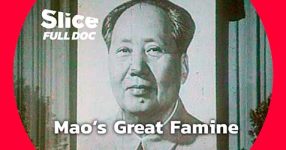Wealth inequality has emerged as a critical concern in today’s global landscape, impacting nations far and wide. Germany, often hailed for its economic prowess, has not remained untouched by this unsettling trend. The divide between the affluent and the impoverished is progressively deepening within the heart of this prosperous nation. The documentary, “Inequality: How Wealth Becomes Power,” delves into the various factors contributing to this burgeoning chasm and its far-reaching consequences.
The Roots of Disparity
The thought-provoking documentary initiates its exploration by posing a fundamental question: What factors contribute to the substantial wealth and influence amassed by some, while others perpetually grapple with the harsh realities of life beneath the poverty line? Does an individual’s upbringing or work ethic play a pivotal role in shaping their financial fate, or is the system inherently rigged against those less fortunate? As we delve deeper into the film, it becomes apparent that it seeks not only to shed light on the statistical data concerning the impoverished but also to uncover the less-explored data regarding the ascent of the elite.
Christoph Groner, a name that resonates with prosperity today, came from humble beginnings. As a young man employed in the construction industry, he seized an opportunity to invest in the then-recovering real estate market. His astute decision bore fruit as he climbed the ladder to become one of the most prominent developers in the nation. Nonetheless, the apartments and residential properties he developed now predominantly house the wealthy, while long-standing residents of German cities find themselves increasingly priced out of his properties.
Groner staunchly defends his position, deeming it perfectly legal, and asserts that comparing his status to the plight of the less fortunate is inherently unfair. However, he is not the sole subject of scrutiny in the documentary. Others who have accumulated their wealth through centuries-old inheritance also find themselves in the spotlight. Yet, a system where money begets more money for the wealthy, while the lower classes struggle with stagnant wages, is a challenging one to defend.
The Ascendancy of the Affluent
The documentary underscores a disheartening trend wherein the majority of income gains favor those already perched atop the economic ladder. The middle class, once considered the backbone of society, has seen a notable decline. This dynamic extends far beyond Germany’s borders, echoing in the face of globalization’s ceaseless march.
“Inequality: How Wealth Becomes Power” introduces us to a team of esteemed economic researchers who diagnose the systemic malaise and call for a long-overdue societal reckoning. The question that emerges is profound: What kind of society do we aspire to be? In their view, perpetuating the trajectory of inequality is untenable and inhumane, casting a grim shadow over our collective future.
Germany’s Economic Landscape: A Mirror of Disparity
Even in one of the world’s most affluent countries, wealth inequality is a specter that refuses to dissipate. The privileged few continue to surge ahead, while the less fortunate find themselves trapped in a relentless downward spiral. The concept of work as a means of upward mobility has been eroded for the middle class, leaving them grappling to preserve their status.
Today’s youth grapple with a stark reality where disposable income dwindles compared to preceding generations. This documentary endeavors to explore the labyrinthine web of inequality within Germany, presenting a comprehensive blend of background analysis and stark statistics. Distinguished researchers and experts in the field lend their voices to the narrative, guiding us through this intricate landscape.
As we follow Christoph Gröner, one of Germany’s eminent real estate developers, in his daily activities, we gain insight into the mind of a man whose wealth and influence shape the nation’s urban landscape. Gröner’s perspective is unapologetically clear: “If you have great wealth, you can’t fritter it away through consumption. If you throw money out the window, it comes back in through the front door.” His influence extends to building multi-family residential units, selling condominium apartments, and participating in large-scale planning projects that shape entire districts.
The documentary further taps into the insights of renowned experts such as Nobel-prize winning economist Joseph Stiglitz, economist Thomas Piketty, and Brooke Harrington, who immersed herself in extensive field research among investors within the international financial elite. Their voices offer valuable perspectives on the multifaceted issue of inequality.
The Globalization Factor
Branko Milanović, a former lead economist at the World Bank, identifies globalization as a key player in the growing inequality across the globe. The casualties of globalization are primarily the lower-middle class within affluent countries like Germany, who, as Milanović points out, earn wages on par with those of two decades past. This poignant observation serves as a stark reminder that humanity stands at a crossroads, with a critical decision looming: Will prosperous nations allow rising inequality to unravel the very fabric of society, or will they muster the resilience to challenge this worrisome trend?
In conclusion, “Inequality: How Wealth Becomes Power” offers a thought-provoking journey into the heart of Germany’s economic landscape, serving as a microcosm of the global battle against wealth inequality. The documentary’s resounding message is clear: the present trajectory is unsustainable and inhumane, and it is high time for society to confront the pervasive issue of wealth becoming power.












